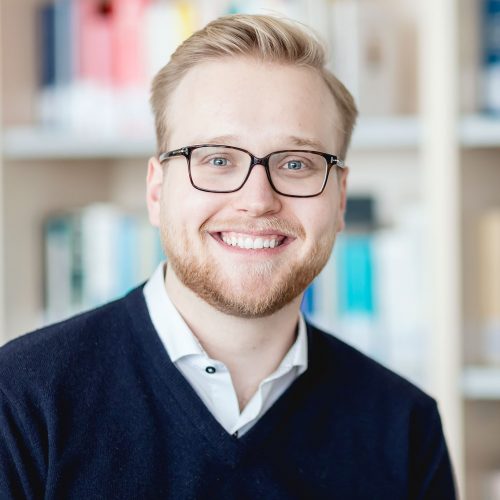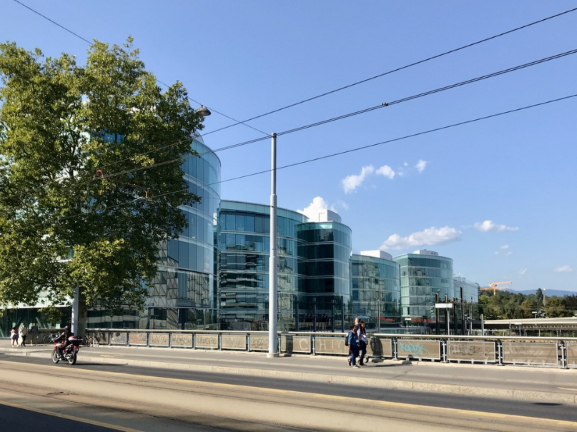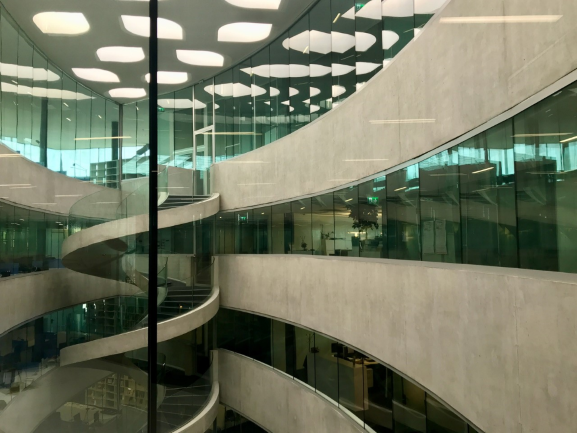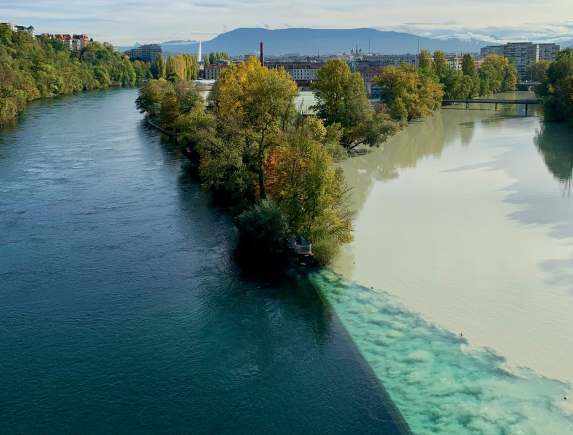Voices from the Sylff Community
Apr 16, 2020
The State and the Rights of Individuals: Pursuing Research at the Graduate Institute Geneva
Using an SRA grant, Benedikt Behlert spent four months from September 2019 to January 2020 as a junior visiting fellow at the Graduate Institute of International and Development Studies in Geneva, Switzerland, which proved to be highly beneficial for his PhD project on the administrative procedures required to protect human rights.
* * *
My PhD project on “The Necessity of a Conversation between the Administration and the Individual: The Relevance of Procedure to International Human Rights” asks the question whether international human rights law requires states to have in place structured decision-making procedures for their administrative bodies. Such procedures are often perceived as a nuisance by the two sides involved—the administration and the individual confronted with it—and as an unwelcome hurdle in reaching their objectives.
This perception clouds the value of administrative procedure, however, which can protect individual rights against arbitrary state action. This protective potential is realized first and foremost by involving the individual in the decision-making process, such as by granting them a right to be heard and requiring reasons for a negative decision. This is the insight from which my normative analysis of international human rights law commences.
The different ways in which individuals are potentially confronted by administrative bodies are numerous. Beyond “everyday encounters,” such as when an individual applies for a permit, there are complex and sensitive human-rights issues like the ongoing “migration crisis” that highlight the relevance of this inquiry.
What does international human rights law say about the relevance of procedures for the protection of the rights of migrants and refugees? Does it require institutionalized procedures to examine whether a person’s claim for asylum is well-founded? What should such procedures look like? A thorough understanding of the general relationship between the laws governing international human rights and administrative procedures should help answer such questions about specific encounters between state administrations and individuals.
Comparison with Constitutional Rights
One chapter of my thesis draws inspiration from German constitutional law, in particular, the German doctrine of constitutional rights. The connection between administrative procedure and German constitutional rights has been discussed for more than 40 years. The ideas and arguments found in this discourse are by now well-developed, and given the striking structural and substantial similarities, they might provide valuable insights for human-rights-based arguments.
The goal of this comparative exercise was to learn something about the structure and nature of international human rights law, which will inform the subsequent part of my thesis where I try to construct an international-human-rights-law-based argument in favor of procedural rights and obligations.
However, looking for inspiration from one’s own jurisdiction carries a certain risk for the international lawyer. The outcome of research may be too heavily influenced by one’s own background and thus irrelevant to the international legal discourse. In order to avoid falling into this trap, I decided to write the part of my thesis focusing on the similarities and differences between constitutional rights and international human rights in a highly international research environment.
I had the great honor of spending four months at the Graduate Institute of International and Development Studies in Geneva as a junior visiting fellow. With its very diverse faculty and even more diverse student body, the Graduate Institute Geneva—also a Sylff institution—was just the right place for me to get the inspiration and critical feedback I needed.
The Benefits of an International Research Environment
I reviewed pertinent German constitutional law literature and international human rights law literature during my stay. The vast number of resources available at the Graduate Institute and its library were a great help. Most importantly, however, I had the chance to talk to researchers at various levels—PhDs, postdocs, and professors—from different disciplinary and national backgrounds, both informally and in more formal settings. Everyone at the International Law Department was extremely welcoming and helpful. In numerous talks with members of the world-renowned faculty and fellow PhD students, I received valuable input.
Furthermore, I gave a presentation in a roundtable session at the International Law Department, which was followed by an engaging and stimulating discussion. Not only did all these talks enable me to think about the German ideas more critically, but they also helped me to find more effective ways to present my findings to an international audience, which is the eventual target of my thesis.
Beyond the direct benefits for my research, my time as a junior visiting fellow at the Graduate Institute helped to broaden my horizon more generally. Almost every day, a high-level event with leading figures of international politics took place in the grand auditorium, exposing me to many interesting and informed analyses of current issues and crises. The junior visiting fellowship thus enabled me to better perceive my research within the bigger picture of international studies. Finally, the support which the International Law Department and the visiting fellows office provided was outstanding, very personal, and made my stay comfortable and easy.
Being a junior visiting fellow at the Graduate Institute Geneva was a splendid experience. I am certain that my thesis will reflect the inspiration and input I received during my stay. I am immensely grateful to the Sylff Association for funding my stay in Geneva with a generous SRA award, and I can only encourage other fellows who have not done so to make use of the extraordinary opportunities the Sylff Association provides!
Behlert's related article "Forced Migration in Transition: Perspectives from Social Science and Law" can be read at www.sylff.org/news_voices/27466/.



